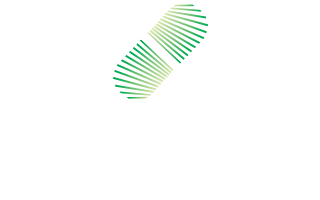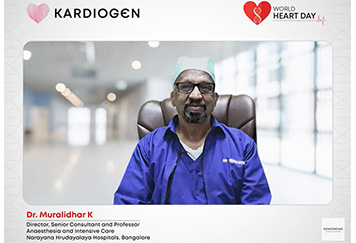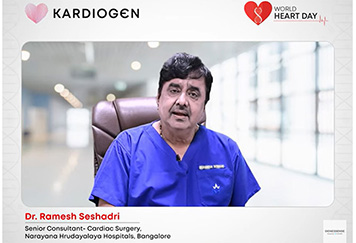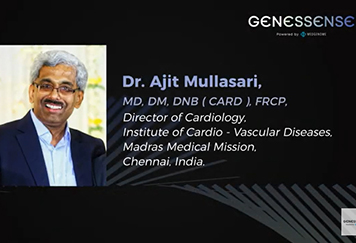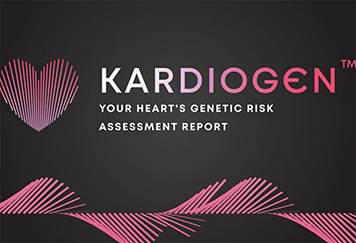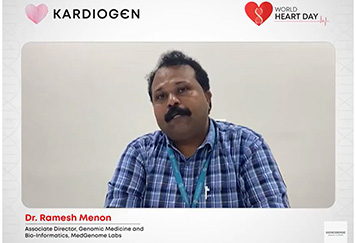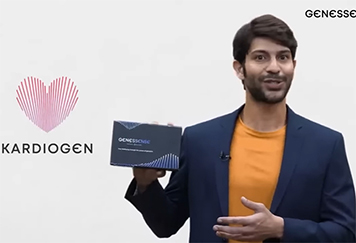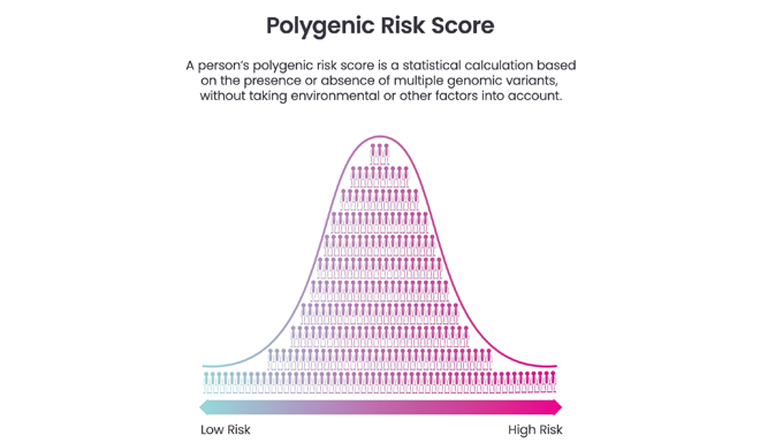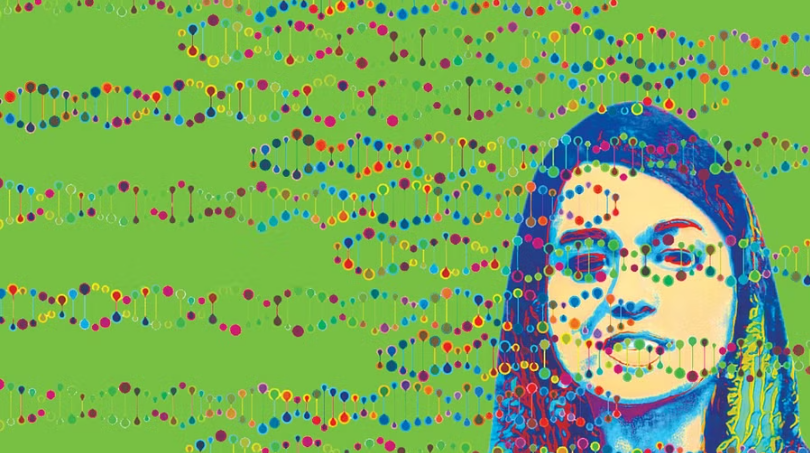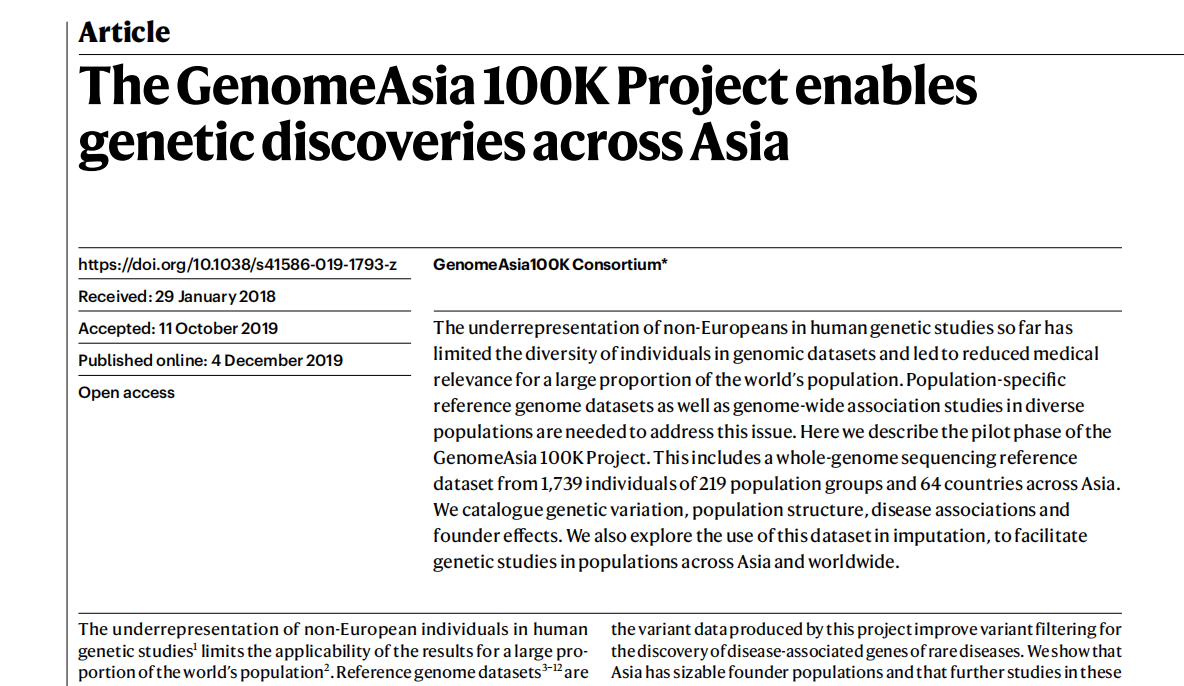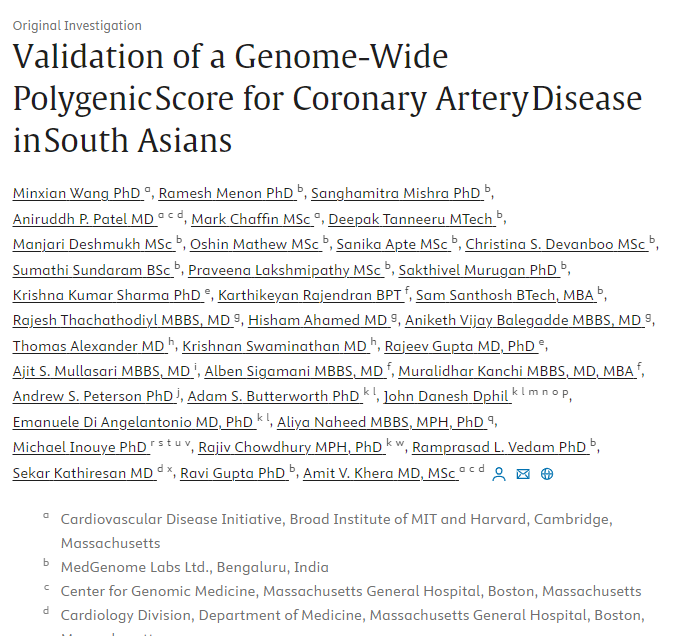Scientific Insights
Know Your DNA
DNA is the basic genetic material to all the living things. Human DNA sequence is about 99.5% identical between two persons, but their appearance, behaviour, health condition can be different. In other words, the small differences in the DNA sequence makes each person unique.
These differences are called genetic variants. Your DNA was passed down from your parents. Genetic variations are scientifically studied to provide insights which are related to health conditions, traits etc.
What your genes can tell you
Genetic variations in our genes are partially responsible for common diseases such as heart disease, diabetes, etc. A genetic variation along with lifestyle and environmental changes can raise your chances of getting common diseases. Scientific research has shown that up to 80% of the risk for developing certain diseases may be explained by genetics. However. this must be correlated with your age, diet, body weight, ethnicity, and other factors. For example, an unhealthy diet and lifestyle can contribute to higher BMI which can make you obese, but at the same time obesity can run in certain families.
Knowing your genetic predisposition for genetically developing a health condition can help you make the right choices for better health.
Polygenic Risk Score (PRS) for disease risk prediction
Genomic research over the past two decades has revealed that our risk for many common conditions such as heart disease or diabetes are not influenced by just one genetic variant, or even a handful of them. Instead, multiple genes work in tandem to influence our risk for diseases. There are millions of genetic variations, with independent minor effects that have a combined influence on your chance of developing a disease.
Polygenic Risk Score quantifies the contributing effects of a large number of genetic variations into a score and estimates whether the tested individual is at a high, moderate or average risk of getting a specific disease. PRS is a scientifically established and validated methodology, published in peer-reviewed journals.
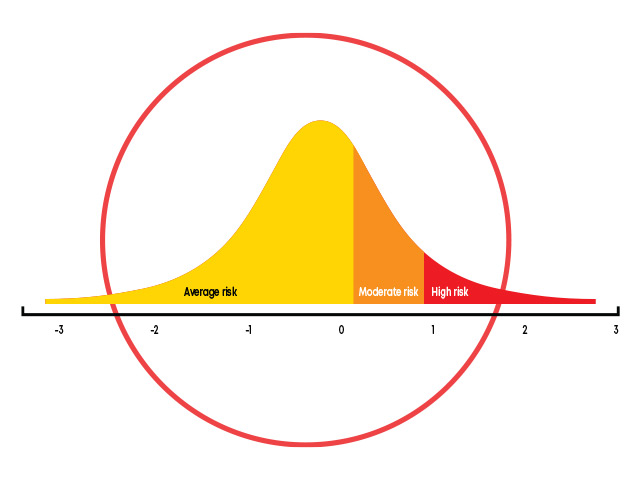
Genessense Polygenic Risk Scores are validated in the South Asian population.
Our Scientists have invested over 10000 + man hours on research and validation to design and develop the Genessense Genomic Wellness Services.
Coronary Artery Disease (CAD)
Cohort of about 3000 case-control samples. Study is published.1.3 million
genetic markers coveredType 2 Diabetes (T2DM)
Cohort of about 11000 case-control samples from 3 independent cohorts. The study manuscript is in the process of getting published.6.9 million
genetic markers coveredObesity/BMI
Cohort of 14000 individuals from 3 independent cohorts. The study manuscript is in the process of getting published.2 million
genetic markers coveredHypertension
Cohort of about 2700 case-control samples. The study manuscritpt is in the process of getting published.10000
genetic markers coveredParkinson's Disease (PD)
Cohort about 2000 case-control samples. The pilot study is published.1805
genetic markers coveredAge-related Macular Degeneration (AMD)
Cohort about 600 case-control samples. The study manuscript is in the process of getting published.34
genetic markers coveredHypercholesterolemia
Cohort about 873 case-control samples. The study manuscript is in the process of getting published.223
genetic markers coveredNon-alcoholic fatty liver disease (NAFLD)
Cohort about 167 case-control samples. The study manuscript is in the process of getting published.60
genetic markers coveredMethylation based health risk prediction
Methylation is an epigenetic process that influences gene activity without altering your DNA sequence. This process adds a methyl group (CH3) to DNA at specific sites, affecting how genes are expressed. Each of us has a unique methylation pattern, and while some changes occur naturally with age, others are shaped by factors like diet, lifestyle, stress, and environment.
By examining thousands of methylation markers in the DNA, tools like PCGrimAge and DunedinPACE can reveal your biological age and rate of aging, offering insights into your current health status. Higher the PCGrimAge or a faster DunedinPACE are indicative of certain health issues, helping you better understand the effects of unhealthy lifestyle, stress etc. on your overall health risk and aiding to take preventive measures.
DNA sequencing for disease risk identification
Sequencing targeted genes, whole exome, or the entire genome is beneficial for assessing the risk of various health conditions. By analysing an individual's DNA, this process identifies the presence or absence of genetic variants responsible for rare genetic diseases and certain hereditary cancer. For example, few variants in HBB gene cause beta thalassemia and few variants in BRCA gene make an individual susceptible or increases the likelihood of developing breast cancer. Hence, proactive screening for important health conditions will help to prevent or mitigating the disease risk.
Pharmacogenomics for personalized medicine
Pharmacogenomics (PGx) is the study of how genes influence a person’s response to drugs. Research has shown that individuals can react differently to the same drug based on their genetic makeup. For example, some people metabolize drugs so quickly that the medication becomes ineffective, while others metabolize them so slowly that standard doses can become toxic. This variation is caused by genetic changes in the genes responsible for drug metabolism or transportation. For instance, genetic variants in the CYP2D6 and CYP2C19 genes can affect how your body processes certain antidepressants. Depending on your metabolizer status, your medication dosage may be adjusted, or alternative therapies may be recommended.
By utilizing advanced technology and following guidelines from the Clinical Pharmacogenetics Implementation Consortium (CPIC), we can identify genetic variants and offer personalized medication recommendations. CPIC, in collaboration with PharmGKB, provides evidence-based guidelines across multiple therapeutic areas to help tailor treatments to everyone.
Genessense Advantage
Genessense by MedGenome has been a front-runner in this area, by collaborating with renowned clinical experts in their respective fields, recruiting samples from the South Asian population, performing additional validation studies, and publishing high-quality scientific results.
Existing risk predictions are based on factors such as weight, lifestyle, blood measurements which are variable throughout a person’s lifetime and cannot be used to predict genetic risk accurately. Genessesne screenings on the other hand is an independent genetic predictor and is free from variabilities. These screenings are based on a person’s genetic makeup and predicts their risk profile.
Choose our screening test
Genetic screening from the comfort of your home in
5 easy steps
Talk to our expert Genetic Counselors,
pre and post genetic screening to understand better.
Know more














